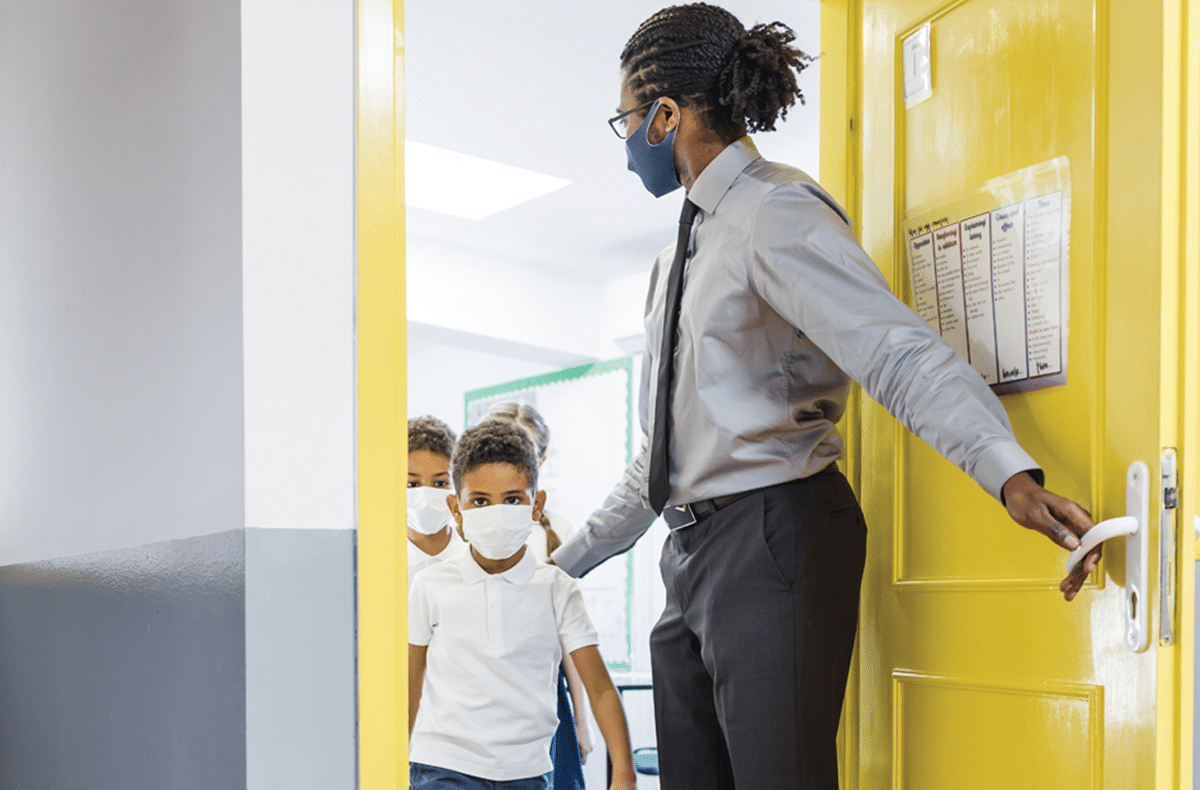How covid-19 has affected teachers around the country

South Africa’s educators faced unique challenges even before the pandemic hit our shores. How are they coping now?
The global Covid-19 pandemic has put an enormous strain on South Africa’s educators. On top of the day-to-day pressures and stresses of their jobs, teachers have had to learn to balance their own psychological and social needs with those of their students. Those privileged enough to have access to digital learning platforms have had to adapt to a blended teaching approach, and all have had to deal with hugely restricted in-class conditions, interrupted curricula and naturally, fears around contracting or spreading the virus.
Many pre-pandemic challenges are also still at play, such as a lack of resources, undisciplined students and language barriers. A 2018 Teaching and Learning International Survey (TALIS) released by the Basic Education Department found that South African teachers were already spending a hefty amount of time on administrative tasks three years ago – more so than their international counterparts. Around 66% of classroom time is spent on actual teaching and learning in South Africa, compared to 78% in other countries.
To find out what teachers are experiencing, we spoke to three of them from different fields and locations across the country.
Parents and guardians should partner with teachers to ensure the best experience for learners.
1. SIBUSISO MASOMBUKA, grade head and sports administrator, Gauteng
When I was a boy, I often played ‘school’ at home and used my late mom’s teaching materials and files as props to make the experience more fun. However, as I got older I decided that I wouldn’t make enough money as a teacher, so after completing a BA degree I went to work in retail. Thankfully, before too long I realised that my true passion lies in education, so I quit my well- paying job to pursue teaching and I’ve never looked back!
One of the biggest challenges I’ve faced is the deteriorating parental or guardian involvement in children’s development as they progress through school. Parents and guardians should partner with teachers to ensure the best experience for learners. The socioeconomic status of schools in South Africa also contributes to the administrative burden on teachers. Class sizes in most public schools are large and unmanageable. A lot of schools in our country are under-resourced and do not support educators in providing an optimal educational experience for learners. In addition to preparing teaching content, I also play the role of a grade head, life orientation subject head and sports administrator. Most teachers in South Africa occupy more than one role in a school, and each has its own admin requirements.
With Covid-19 in the mix, we also have the burden of screening learners at school, drawing up floor plans and submitting learner health data to the Department of Education. And of course we have to teach learners who have underlying health issues at home, and help those who have missed out on lessons. It is a lot, but we do it diligently to ensure a safe and supportive environment for our learners.
Related article: 6 Lessons we’ve learnt from lockdown
2. SIVIWE SAWATI, mathematics teacher, Eastern Cape
I have always loved maths, but it was only around Grade 12 that I decided to become a teacher. I used to help other students study for their maths exams, and one of them said to me, ‘You explain it so well, why don’t you teach?’ I love that I get to help others enjoy maths as much as I do, especially those from disadvantaged backgrounds.
As an educator, one of my biggest challenges has been feeling that I’m not supported. I’ve had to find my own feet – there’s no real support for people entering the education profession, to help them move from the theory of teaching, to the practical side of the job. I’d like to see a programme in schools just to help incoming teachers. One solution could be to allocate an experienced teacher to an inexperienced one, as a kind of mentor.
For me, the administration side of things is manageable, but I have friends in other schools who struggle with this and find it exhausting. I think it mainly depends on the school’s resources.
Related article: 5 Ways to set boundaries for friends and family who aren’t social distancing
3. AMY-LEE BAND, drama teacher, Western Cape
I think I always knew I wanted to be a teacher, but I knew for sure when I went to teach English in Thailand after I finished high school. I was drawn to the fact that no day is ever the same – and I could be around children! I love that I get to share my passion for drama, and I love how excited the learners are when they come to my class.
At the moment, the Covid-19 protocols are a huge challenge, as drama should be very interactive and ideally done without masks on! I’m lucky that I work at schools that support the arts, but some schools do not, so many creative arts teachers face challenges around lack of resources – or our subjects fall away if they are not seen as important, which has happened during lockdown in some schools.
Admin is also a challenge. Assessment requirements and parts of the curriculum can change, which means time has to be spent on changing tests, guidelines and material.
I think it would help if teachers work together more, across schools, to assist each other with sharing of material and systems, instead of schools being in competition with one another.
Related article: What is long Covid and who is at risk?
Related articles

Latest Jet club magazine
We’ve got the latest trends, exciting prizes and exclusive savings just for you!
Jet Club will not pass your details to anyone else. By clicking the subscribe button you confirm you have read and agree to the Jet Club Terms and conditions and Jet Club Privacy Statement.
Subscribe





